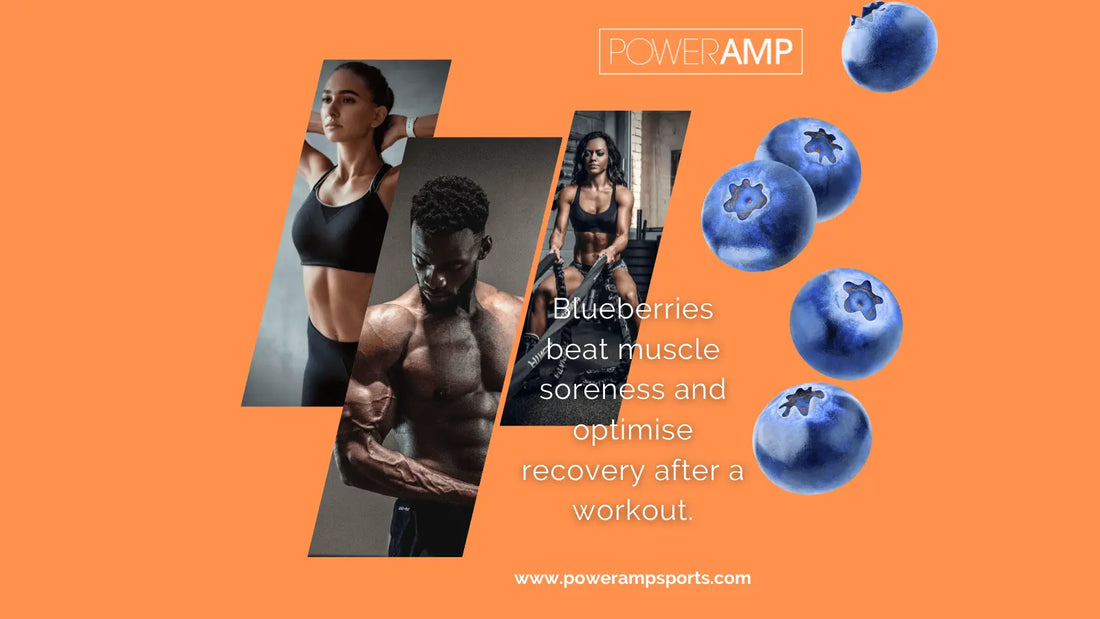Blueberries beat muscle soreness and optimise recovery after a workout.
Muscle Biopsies of Athletes have confirmed that eating blueberries can significantly reduce inflammation.
- Dr. Micheal Greger in How Not to Die
Your muscles may experience pain the day after a hard workout because of delayed-onset muscle soreness.
The inflammation produced by damaged muscle cells or tiny tears in the muscle is thought to be the root of this pain.
It is worth considering if you have discovered that anti-inflammatory phytonutrients may benefit you.
Adding more phytonutrients to your diet, such as the anthocyanin flavonoids found in berries, may help you manage inflammation.
A randomised controlled trial examined the effects of antioxidant-matched placebos and blueberry smoothies on muscle performance.
After exercising for 12 and 36 hours, group one had a blueberry smoothie or an antioxidant-matched placebo beverage.
Before exercising, group two consumed the comparator drink 12 times over 36 hours.
The blueberry smoothies comprised a cup and a half of frozen blueberries, unsweetened bananas, and plain apple juice.
The placebo smoothies, in contrast, had dextrose in place of the berries and Vitamin C added to equal the juice's caloric and antioxidant content.
What were the results?
- The blueberries worked better at mopping up damaging free radicals.
- Without blueberries, oxidative stress went up and stayed up; with blueberries, however, it went right down and stayed down.
- What was the result? The blueberries worked better at removing free radicals.
- Without blueberries, oxidative stress went up and stayed up; with blueberries, it went down and stayed down.
The greatest advantage of blueberries is their abundant antioxidants. However, a recent study has found that they also help guard against the damaging effects of free radicals on the body.
The consumption of blueberries can hasten recovery, which may be especially important for athletes who compete on successive days.
Exercise alone can aid in the absorption of these phytonutrients, and taking these supplements together with exercise may help with the effects of exercise.
It is believed that vigorous exercise may alter the behaviour of the beneficial bacteria in our stomachs. The bioavailability of phytonutrients may increase as a result.
Watermelons, cherries, spinach, and ginger are other foods that may aid in reducing muscular discomfort after a strenuous workout.
Source:
The POWERAMP Recovery Set Includes the following products:
- Sports Magnesium 60 capsules
- Post-Workout Drink
- Rapid Hydration (Raspberry Lemonade)
- Turmeric Recovery 60 capsules
- Everyday Fish Oil 120 capsules



Leave a reply
Nunc vehicula quam semper odio varius tincidunt. Vestibulum ante ipsum primis in faucibus orci luctus et ultrices posue.
Please note, comments need to be approved before they are published.